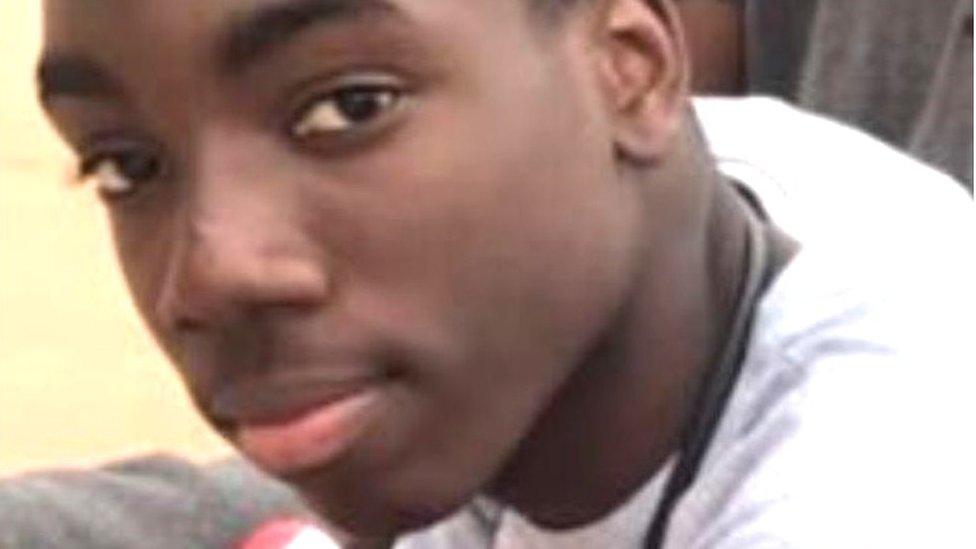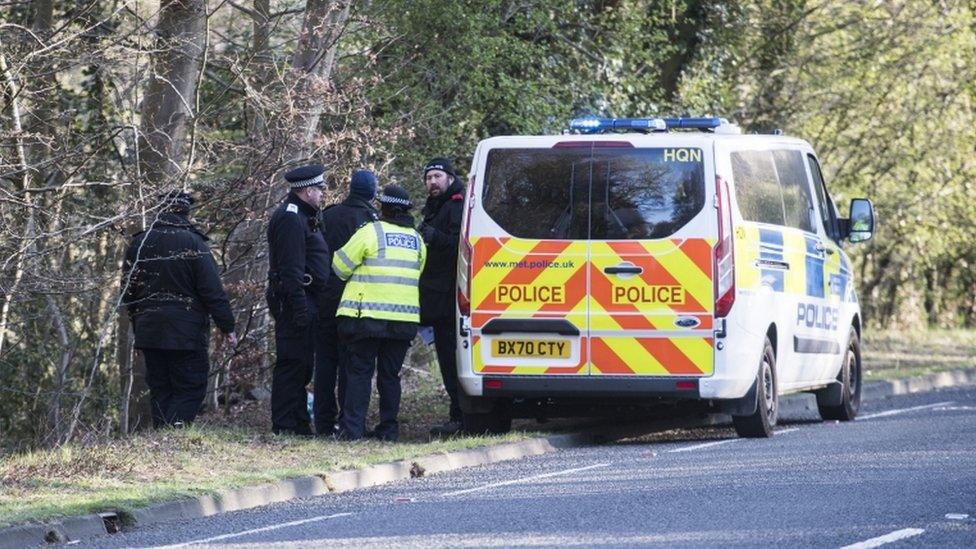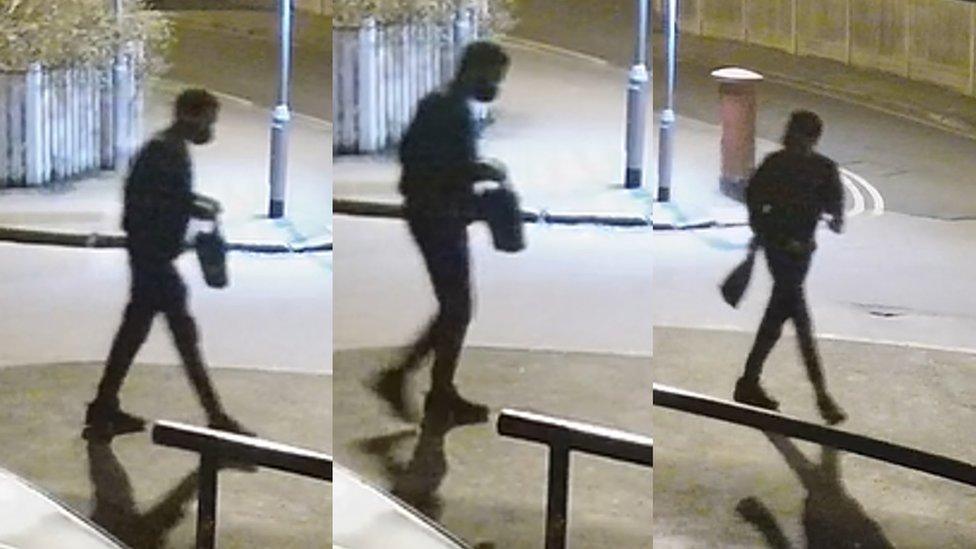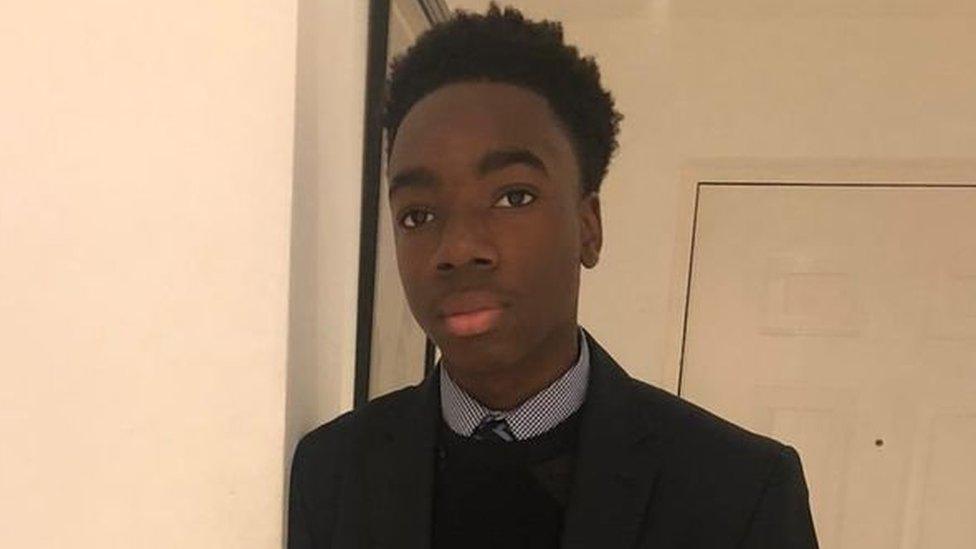Richard Okorogheye death: Met referred to police watchdog
- Published

Richard Okorogheye, who had sickle cell disease, left home without his medication on 22 March
The police watchdog is assessing whether the Met needs to be investigated over its handling of the disappearance of Richard Okorogheye.
The student was found dead in a pond in Essex after being reported missing by his family two weeks earlier.
After Mr Okorogheye's body was found, the Met Police made a mandatory referral to the Independent Office for Police Conduct (IOPC).
The IOPC said it would look to see if any "future involvement is required".
The Met said as a matter of routine a referral had also been made to its Directorate of Professional Standards, as the 19-year-old had been reported missing by his family before his body was found.
After making the initial missing persons report on 22 March, Mr Okorogheye's mother Evidence Joel alleged that when his disappearance was first reported, police "did nothing".
Ms Joel said she was initially told her son was an adult, who could go out and come back whenever he wanted.

On Monday, the Met said it had been informed by Essex Police about the body of a man found in a pond
She said she told officers her son, who had sickle cell disease, had "no jacket, no money, so I'm worried, I'm concerned about his wellbeing" but that it was only on the following Sunday and Monday after his disappearance that she "felt like they were doing something".
After leaving the family home in Ladbroke Grove, west London, on 22 March, Mr Okorogheye took a taxi to a residential street in Loughton, Essex, where he was last seen on CCTV in the early hours of the following day, walking towards Epping Forest.

CCTV images show Mr Okorogheye at about 00:30 GMT on 23 March walking alone on Smarts Lane, Loughton, towards Epping Forest
Ms Joel previously said her son had been "struggling to cope" with his business and IT degree at Oxford Brookes University.
His body was found in a pond in Epping Forest on Monday evening.
Mr Okorogheye's death is currently being treated as unexplained. A post-mortem examination found no evidence of physical trauma or assault.
Further tests are being carried out to establish the cause of his death.
- Published7 April 2021

- Published6 April 2021

- Published4 April 2021

- Published3 April 2021

- Published30 March 2021
